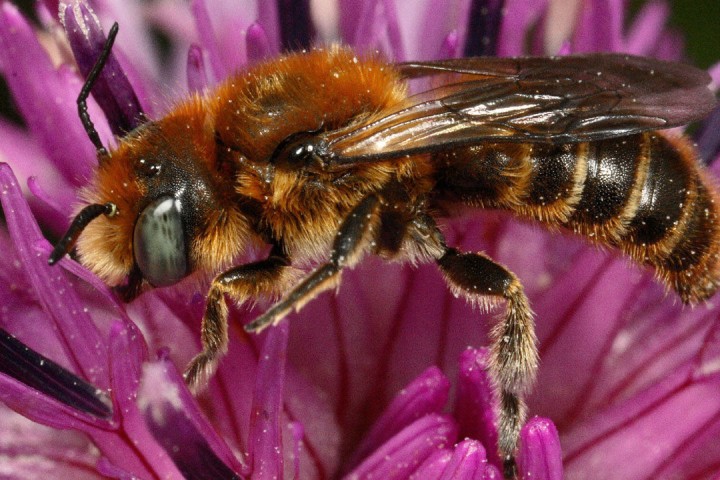Wild bees and other insects are disappearing in the UK

Researchers have studied 700,000 records on insects from 1980 onwards and found that a third (or 33%) of 353 species, including wild bees and hoverflies, have declined across their ranges. Experts say that the levels of die-offs within several species of flying insects over the past decades raise the prospect that they may soon go extinct in England, Scotland and Wales.
Wild bees, which serve a vital role ecosystems as pollinators, have especially been hard-hit by the use of harmful insecticides known as neonicotinoids, which have recently been banned by the European Union. However, more than a tenth (11%) of species studied have seen their numbers increase since 1980, which means that certain insect pollinators are still abundant enough in the UK.
A third of insects surveyed are in decline, including upland bees, which inhabit alpine environments and moorlands, and solitary bees, which live in burrows in the ground. But not all insects are on their way out: populations of 22 species of Britain’s most important crop pollinators are in good health.
“The widespread common species, in very broad terms, are doing okay. The rarer species are doing less well,” says Nick Isaac, of the Centre for Ecology and Hydrology (CEH) in Wallingford, Oxfordshire. “If you only care about wildlife and biodiversity, it’s bad news. If you only care about whether your crops are being pollinated, it’s okay.”
Pollinators serve a vital role in agriculture and not only in the UK but globally. More than three-quarters of cultivated crops worldwide rely on pollinators in one way or another. So do around 90% of flowering plants in the wild. Yet over 40% of invertebrate pollinators, especially bees and butterflies, are facing extinction, as are 16% of vertebrate pollinators. If they go, so will plenty of yields in global crops.
We can protect insects like wild bees by engaging in more sustainable and less invasive agricultural practices. An important part of that entails phasing out the use of harmful pesticides in favor of alternative forms of pest control, including green technology tools. Improving the control of pathogens in bee husbandry can also help by preventing them from spreading to wild bees from cultivated honeybees.
